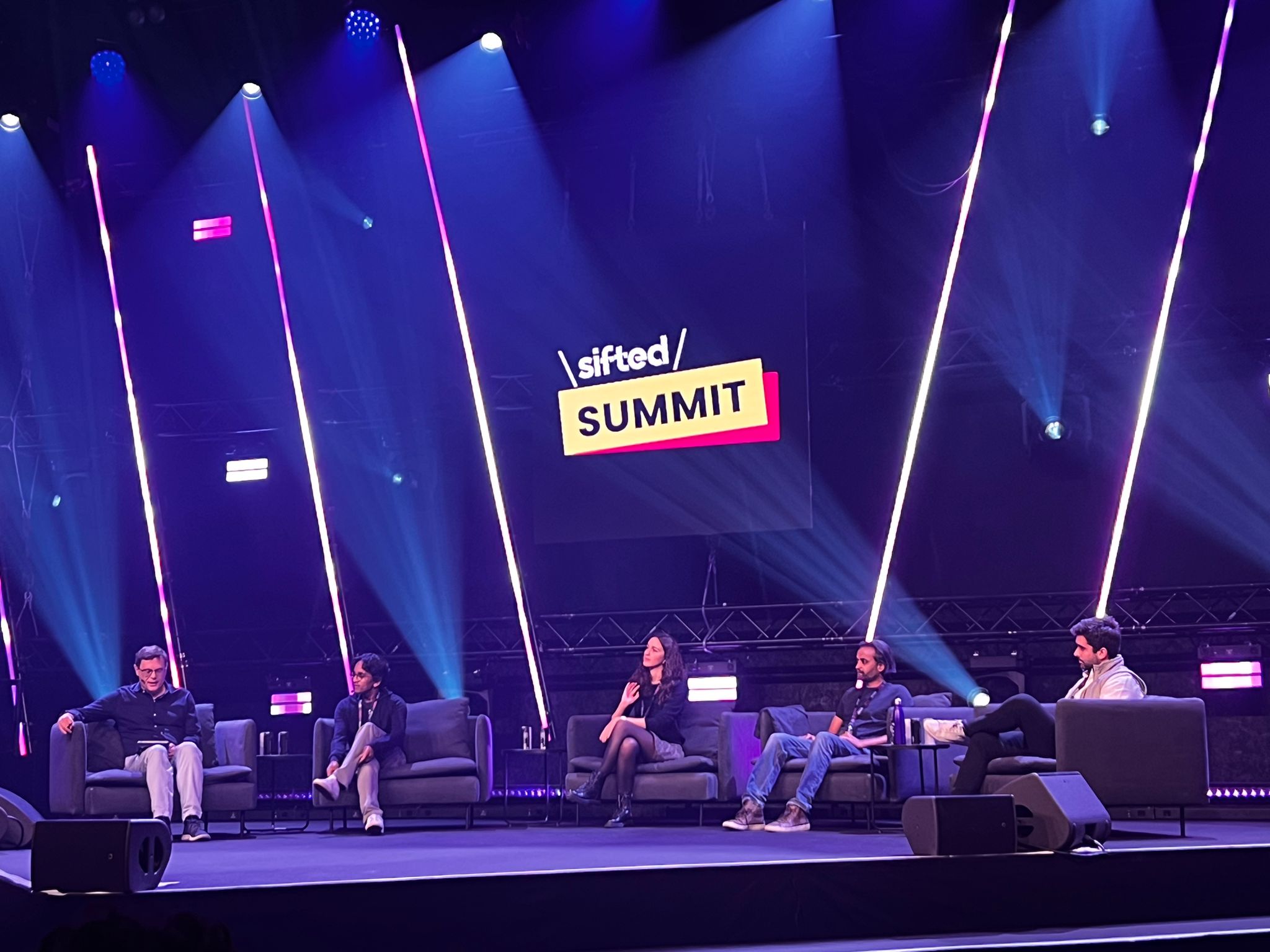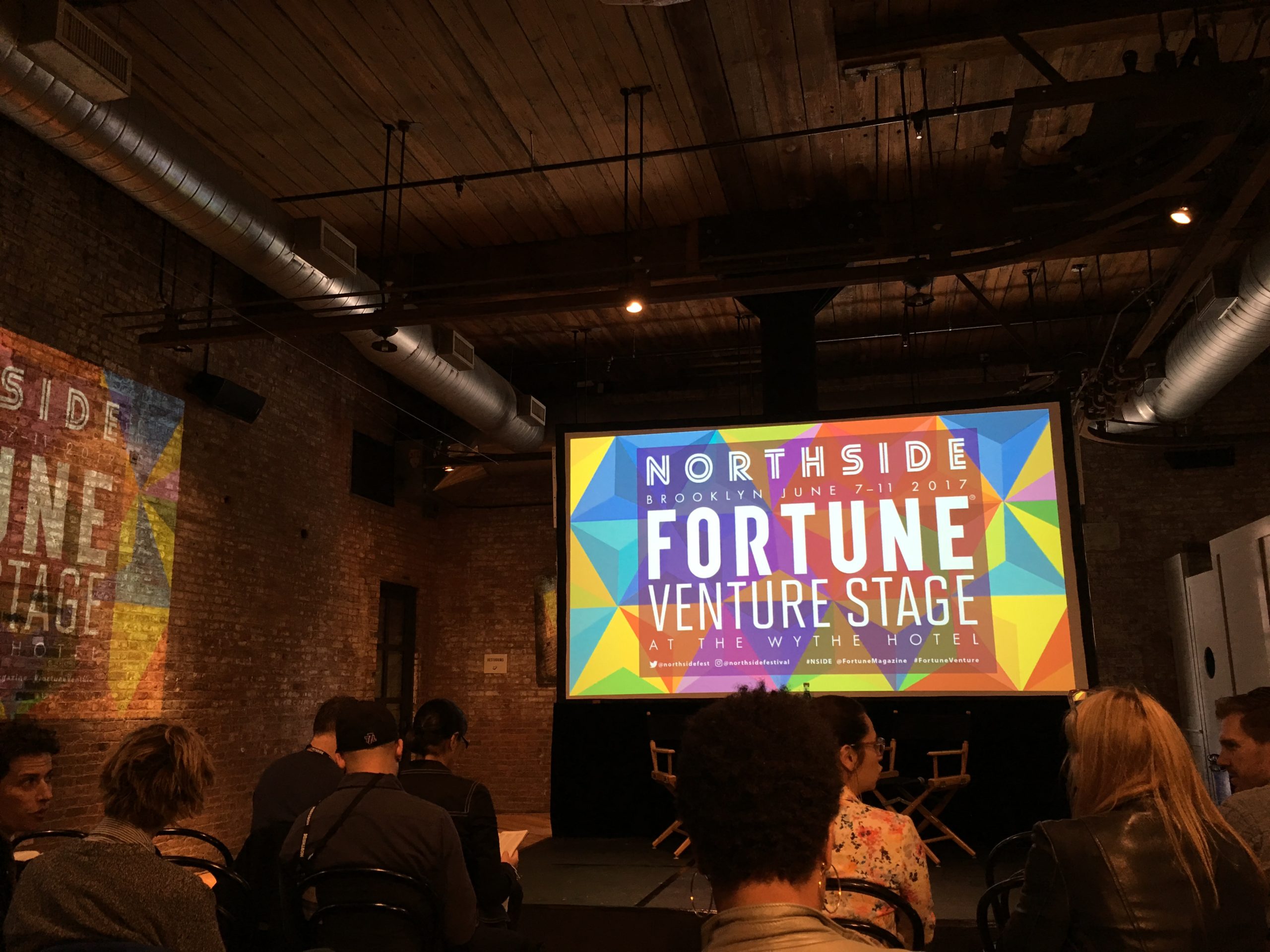This week Fieldhouse Associates sent a delegation to Slush for the first time, as Aislinn, Gayle, and I joined 1,500 investors, 2,600 startups, and 20,000 other attendees, from more than 130 countries, in the Finnish capital of Helsinki. In the tenth year of Slush, and mere days away from the 100th anniversary of Finland’s independence, the atmosphere was electric. Or perhaps I should say ultra-violet, given the spectacular light shows on display both on the main stage and around the conference hall (a liberal sprinkling of blue and pink made us feel quite at home).
If you weren’t fortunate enough to make the trip, and didn’t manage to watch any of the live streams throughout the day, hopefully the FieldHouse report on day one will usefully plug some gaps.
Hello Helsinki
Say what you like about needing to because of their mother tongue’s minority status on the global stage, but so far everyone in Finland really does speak pretty excellent English. I could easily have been convinced that the man marshalling the taxi queue at the airport was in fact English, so accurate was his accent and grasp of idiom.
Faced with the utter incomprehensibility of Finnish to the untrained mouth, the aptitude of our hosts has been a massive help. I haven’t felt compelled to wheel out my rusty A Level Spanish (Mobile World Congress, Barcelona), or been lulled into thinking that said rusty A Level Spanish would tide me over (Web Summit, Lisbon). Nor have I had the surreal experience of speaking to someone in our mutual first language only to have them stare blankly back at me clearly having understood nothing (Northside, New York).
Another big green tick for Helsinki comes in the shape of its public transport network. I’ve complained (at length) in the past about how hostile the experience of using the New York subway is to an outsider, so the seamlessness of buying a travel pass via a mobile app and simply showing a bus driver a QR code was bliss.
Nothing normal
Arriving at Slush itself, a banner greeted us: “Hey weirdos, step in.” Not only a reminder of The Cribs’ indie anthem “Hey Scenesters!”, but also reassuringly free from any of the po-faced buzzword bingo typically found at similar conferences.
Also on the banner was a mantra that it would soon become clear — the on-stage MCs had clearly been briefed on the rhetorical power of repetition — expressed the overarching theme of the event: “Nothing normal ever changed a damn thing.”
True to their word, there was nothing especially normal about the first thing we encountered once inside: breakfast. In Finland, it is apparently acceptable to offer enormous slices of cream cake alongside more conventional breakfast pastries. What’s more, people buy and eat them with no visible shame. I can get on board with this.
Crisis point
Slush’s opening keynote was delivered by former US vice president and renowned climate change campaigner Al Gore. Fresh from his world tour in support of An Inconvenient Sequel: Truth To Power, Gore posed three key questions with regard to tackling man’s impact on the environment: must we change, can we change, and will we change? Fortunately, he sees cause for optimism in a global shift in focus from short-term sticking-plaster solutions to genuine innovation. And just as well, as the climate change crisis isn’t just about the weather. It is, Gore explained, a crisis of food production, a crisis of disease, a crisis of ‘climate refugees’. Ultimately, we must do everything in our power to ensure that the level of the maximum politically achievable action is raised to exceed the minimum physical requirement.
It was no surprise that Gore’s keynote focused so heavily on climate issues. But it was clear, too, that he believes entrepreneurs and investors have a duty to harness emerging technologies not only to build businesses and make money, but to effect real change in society and leave the world in a better state than they found it in.
Day one highlights
With that in mind, here are some of the things that caught my attention on day one.
Currently one-third of all food produce is wasted, and the panel on Feeding the Planet in 2025 touched on potential solutions to that problem, as well as means of ensuring the sustainability and security of the global food supply chain.
Ben Pugh of Farmdrop — an online ‘farm to table’ delivery startup that distributes produce sourced from local farmers and fishermen — noted that persuading consumers to give up products or accept compromises is simply not a sustainable solution. Instead, the food industry needs to make healthier, more environmentally-friendly alternatives more enticing. This led to discussion of the quest to create convincing non-animal protein, a passion of Ryan Pandya, founder of non-dairy protein startup Perfect Day. Having already heard from Impossible Foods at Northside in New York earlier this year, it was fascinating to hear a different perspective on the same core issue: balancing nutrition with elusive “mouth feel”.
Meanwhile, talk of autonomous cars dominated a session about Freedom or Safety? Giving Up Decision-Making for Smarter Cities. The conversation really came to life when a question from the audience about why we need self-driving vehicles at all revealed an interesting set of priorities from the panel.
The first case was, depressingly, about productivity — seemingly in the future all time must be dedicated to maximising economic output. Of course, the productivity argument makes much more sense in the context of the industrial applications — such as haulage or ride-sharing — that we can expect to help automation break through first, but it was only after considering the dollars and cents that road safety got a mention. It turns out, though, that autonomous vehicles will have to reach around 25 per cent market penetration before they start realising any significant safety benefits.
And as for the fate of freedom and privacy in the autonomous future? Well, it would have been easier to stomach the argument that we already give up a lot of liberties to use the roads — and that giving up just a few more in order to save some lives is a reasonable trade-off — had it not come from a former senior figure within Uber, with that company’s checkered track record on data security and passenger welfare.
Finally (for now), one of the most interesting thoughts of the day came from a panel on education, If We Started From Scratch What Would Schools Look Like? Among discussion of how less bureaucracy and more data would help teachers deliver better results was a gem of an idea: apply the technology startup’s approach to education. Rather than talking about how many more teachers we need to train globally, think in terms of the number of end users to be served, and how best to scale the service to meet that need. It’s probably not by parachuting in an army of new teachers, but by developing new content and delivery channels through which to engage students.
Signing off
Tune in again tomorrow for our report on day two of Slush, which will focus more on issues affecting the technology startup and investment ecosystem.




